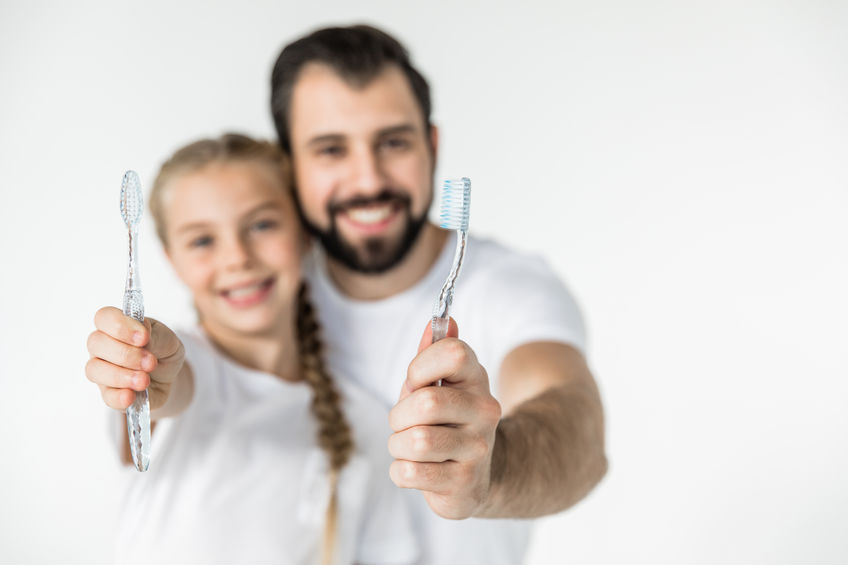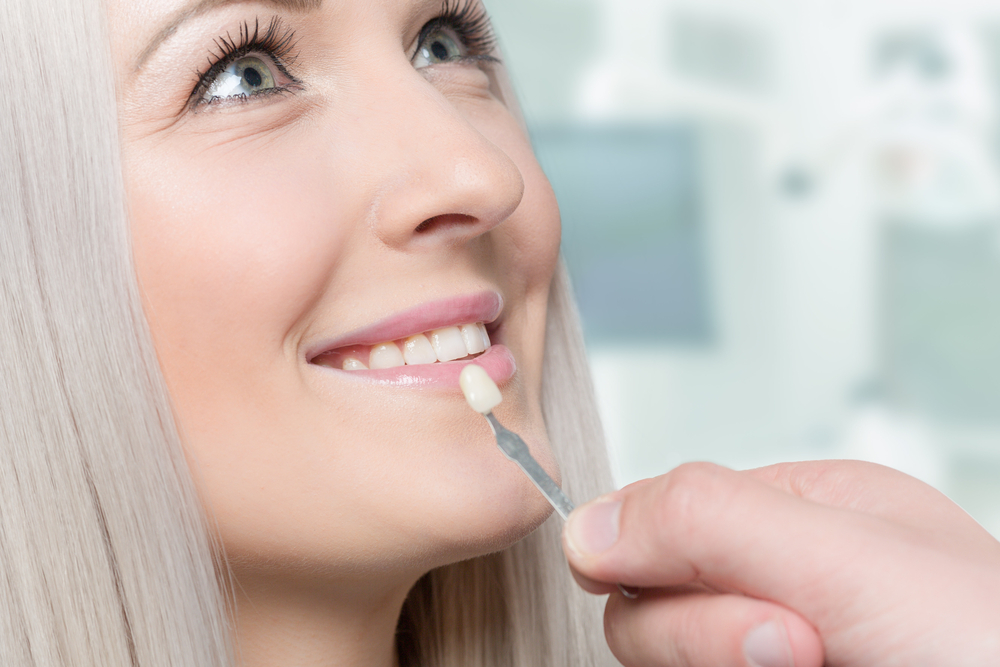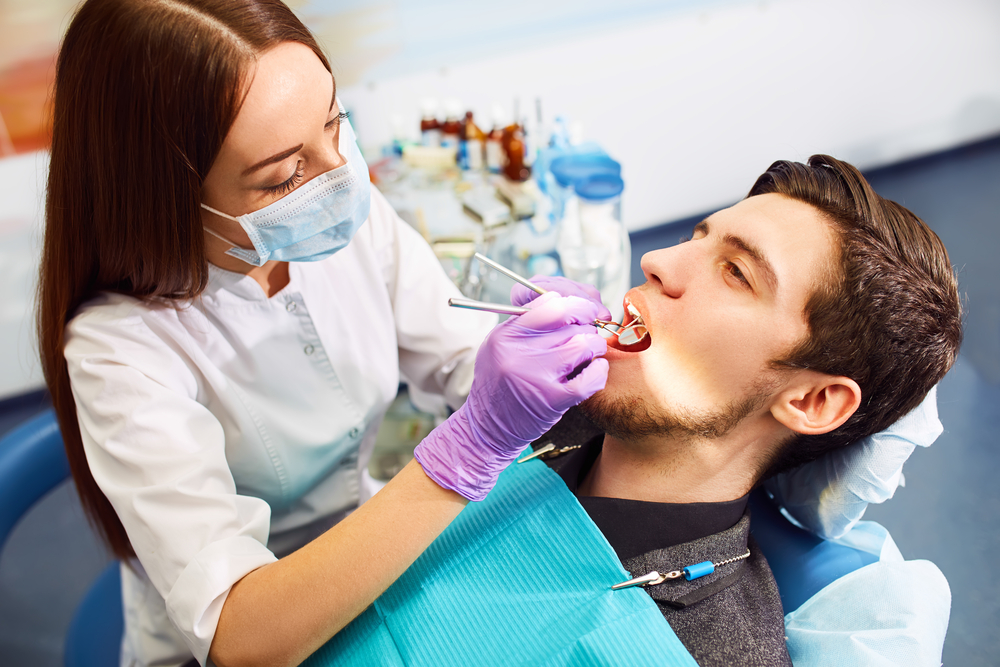For many of us, just the word “cavity” is enough to make us shake in our boots. Cavities illicit fear in everyone – kids and adults. However, there is a misconception that cavities are primarily an issue for children. Adults can have cavities, too.
The American Dental Association explains, “Cavities are more common among children, but changes that occur with aging make cavities an adult problem, too. […] It’s common for people over age 50 to have tooth-root decay.”
And, the numbers of adults with cavities (also known as dental caries) are shockingly high. According to a report by the National Institute of Dental and Craniofacial Research, “92% of adults 20 to 64 have had dental caries in their permanent teeth.”
So, if you are an adult in Houston with tooth pain, you should probably go ahead and make an appointment with the Houston dentists at Greenspoint Dental. If you still aren’t convinced, keep reading to learn all there is to know about adult cavities.
What Cavities Are
Cavities are holes in your teeth caused by tooth decay. They may appear as dark or gray spots on the teeth or eroded spots on the teeth. Cavities form as a result of tooth decay. They are one of the most common causes of tooth pain.
What Causes Cavities
According to WebMD, “Tooth decay occurs when foods containing carbohydrates (sugars and starches), such as breads, cereals, milk, soda, fruits, cakes, or candy are left on the teeth. Bacteria that live in the mouth digest these foods, turning them into acids. The bacteria, acid, food debris, and saliva combine to form plaque, which clings to the teeth. The acids in plaque dissolve the enamel surface of the teeth, creating holes in the teeth called cavities.”
Signs of a Cavity
The most common sign associated with cavities is tooth pain, like sharp pains or a constant dull ache. You may notice pain when you eat, such as when you chew or bite down. Your tooth may also feel more sensitive to temperatures, such as when you drink something cold or hot. Additionally, there may be visible signs of a cavity, such as tooth discoloration or a hole in a tooth.
How to Take Care of a Cavity
Unfortunately, cavities do not get better on their own over time. Instead, they do just the opposite. They get worse (and more painful) until you get them treated by a dentist. Generally, cavities are treated with fillings. However, depending on the stage of the cavity and the extent of the damage, you may need more treatment, such as a root canal, crown, or tooth extraction.
Today’s Cavity Treatments Have Improved
Some adults already have fillings in their mouth that are silver. This type of filling, known as a dental amalgam, was the main type of filling for many years. However, today’s cavity treatments have improved and are often less noticeable than the silver fillings of the past. For example, the Houston dentist, Dr. Bosse, can match the color of the filling to the color of your tooth with fillings made of composite materials. Not only are these fillings less noticeable, but they are also stronger and longer lasting.
How Adults Can Prevent Cavities
When it comes to preventing cavities, the key is to practice good dental hygiene. You should make sure you are brushing with an ADA approved fluoride toothpaste and flossing your teeth twice a day, each day. You should also consider brushing your teeth after eating sugary or starchy foods. You should use a mouthwash that contains fluoride daily. A regular dental care routine will go a long way towards preventing cavities.
Additionally, make wise choices regarding what you eat and drink. Certain foods & drinks wreak havoc on your teeth, such as candy, carbonated sugary sodas, and chips. Instead, opt for fresh fruits and vegetables and drink plenty of water.
The Importance of Annual Dental Visits
In addition to the above steps you should take to help prevent cavities, it is also important that you maintain your annual dental check-ups and cleanings. Not only will cleanings help remove plaque that can lead to tooth decay, but at your routine dental visits in Houston, your dentist can spot cavities at early stages. While you don’t want your dentist to find any cavities during your annual check-up, it is much better to discover cavities before you can see them or feel them yourself. It means the treatment will likely be easier.
Why You Shouldn’t Put Off Visiting the Dentist If You Think You Have a Cavity
We understand that many people are afraid to go to the dentist. We also understand that people put off going to the dentist because they feel like they don’t have enough time or believe their tooth pain will eventually go away on its own. It may be why the Center of Disease Control and Prevention (CDC) reports, “More than 1 in 4 (26%) adults in the United States have untreated tooth decay.”
We cannot emphasize enough why you shouldn’t put off visiting the dentist if you think you have a cavity. Cavities only get worse over time. Worse tooth decay leads to more difficult and costly treatments in comparison to cavities caught in the early stages. You don’t want to reach the point where your tooth decay has become so severe that the tooth cannot be restored and must be removed.
Greenspoint Dental is Home to Houston’s Best Dental Team
For those who call Houston home and suspect they may have a cavity, you are lucky to have access to the fantastic dental team at Greenspoint Dental. Their general dentistry services are designed to make even those who are anxious feel comfortable. They can treat your cavity in a way that makes it as painless as possible with the aid of sedation dentistry, local anesthetic, and nitrous oxide. They will take good care of you and your teeth.
Cavities Aren’t Just for Kids – Here’s What Adults Need to Know About Tooth Decay




